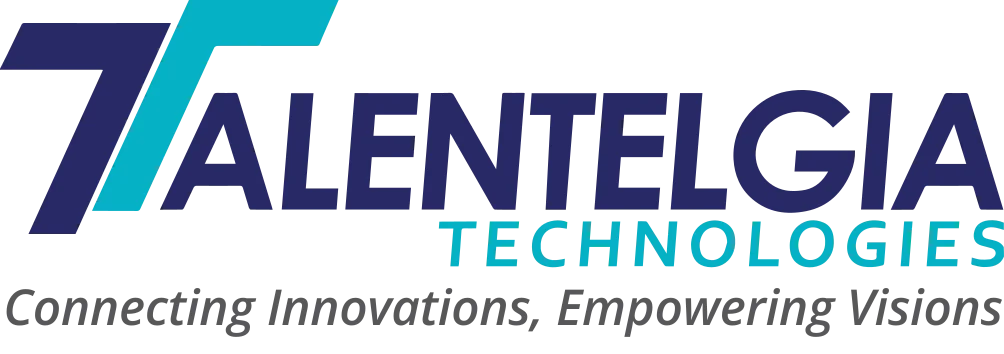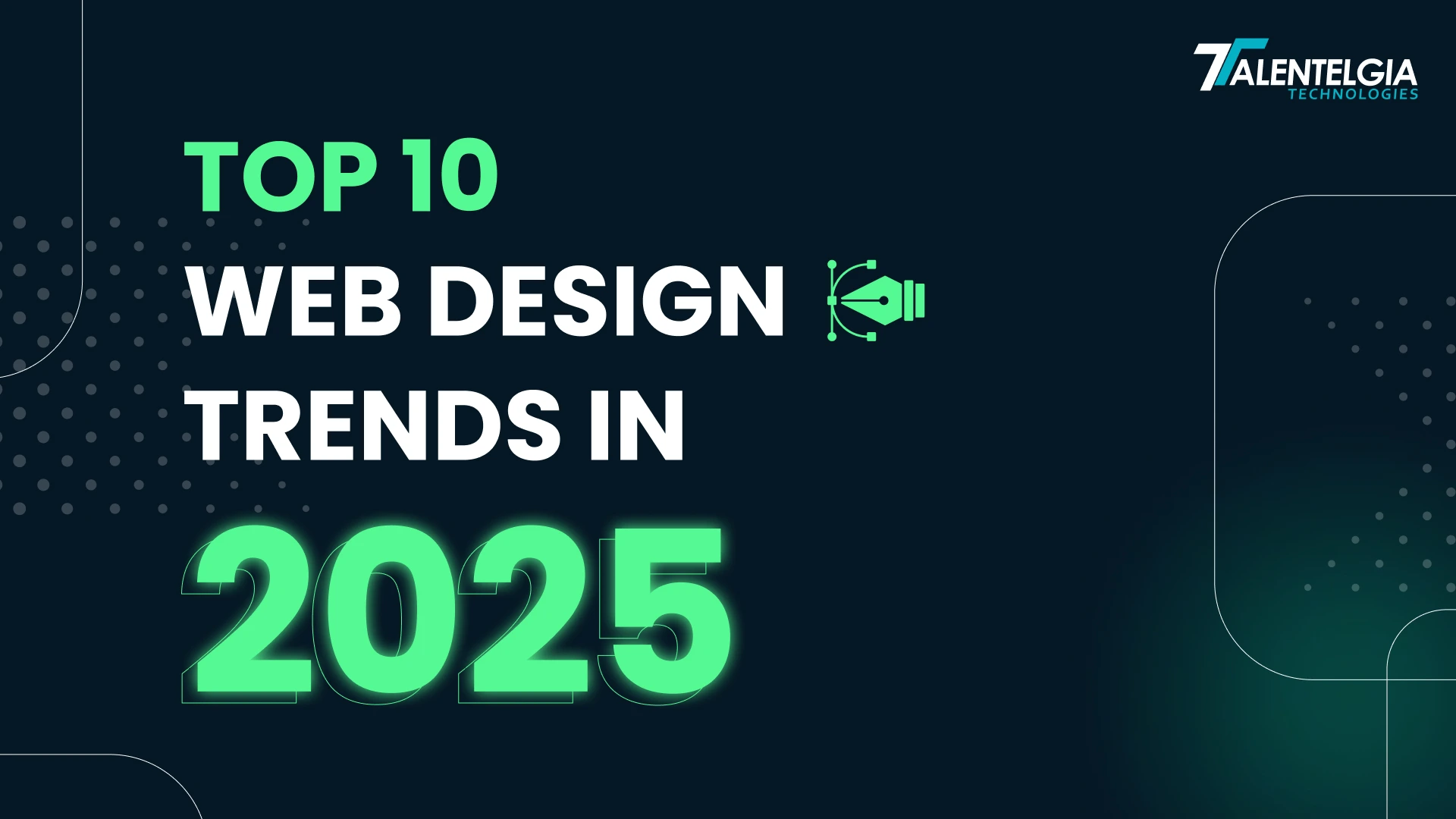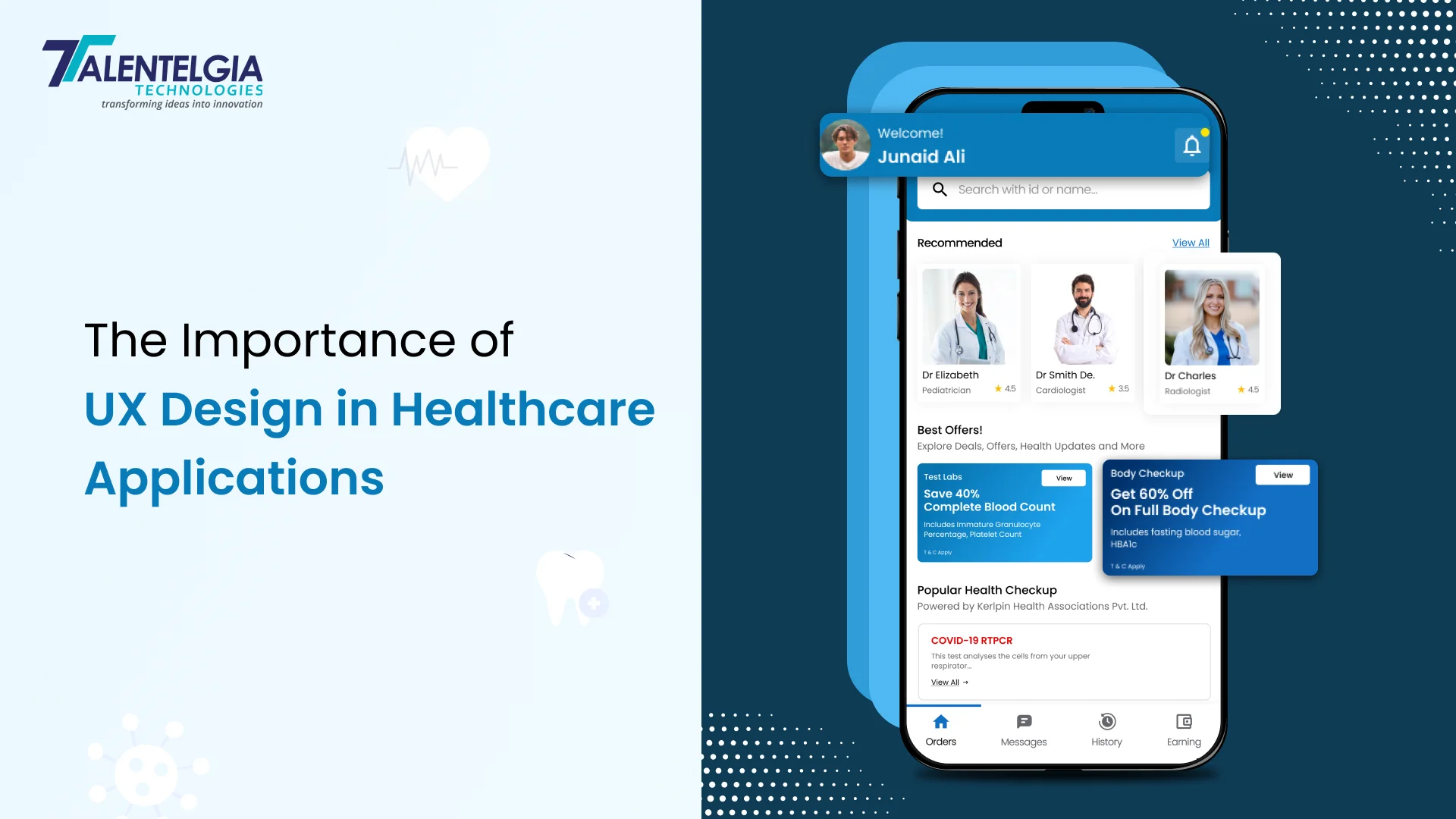Web design is no longer just about ‘looking good.’ It’s about feeling right. Today’s users need designs that are soft to the eye, responsive to their needs, and resonate with them. This year, web design trends aren’t just evolving—it’s transforming into something deeply human, empathetic, and intelligent.
Remember, there are few things more important to your brand than the look, feel, and function of your website. People now rely more on digital platforms for services, shopping, and interaction. So, businesses can no longer afford outdated interfaces and poor usability.
That is why staying up to date on web design trends and UI/UX best practices isn’t just helpful — it’s necessary.
This blog will discuss the 10 web design trends to help you deliver future-ready user experiences. Let’s dive into the future—one trend at a time.
Trending Web Design Trends 2025
Web design trends in 2025 are growing at a fast pace. From subtle design tweaks to complete UI/UX redesign, everything has now become more customer-focused. Web designers and businesses must stay up-to-date with the latest trends to stay relevant and competitive. So, here are the 10 most impactful web design trends in 2025 that are transforming website design, development, and experience.
Neumorphism: Soft UI & Depth
Neumorphism gives modern web interfaces a soft, tactile, almost real appearance. Sometimes referred to as “soft UI,” it draws inspiration from skeuomorphism while maintaining a modern, minimalist sensibility.
Designers keep the users engaged while keeping the design clean and elegant just by mixing low-contrast colors, layered gradients, and diffuse shadows. This style can make digital elements, such as buttons and cards, appear immersed in the background in a subtle yet immersive way.
As we head towards 2025, neumorphism continues to find its application in web design trends across dashboards, auth pages, and mobile apps. Its soft shadows and light create a sense of familiarity and calm—a welcome element, especially in areas like health tech, smart home controls, and fintech platforms.
Why is it important?
- Creates modern visuals that feel intuitive and soft on the eyes
- Blends minimalism with immersive interaction through tactile UI
- Works well in clean, tech-forward industries like wellness, finance, and smart gadgets
Dark Mode Design
What was once an add-on feature has become an integral part of Web design, positively impacting user comfort and system performance. Using darker hues for backgrounds and light, high-contrast text, dark mode minimizes visual strain in low-light settings in particular and can provide up to 50% better battery life on OLED displays.
Dark Mode options will change eCommerce, SaaS platforms, and mobile-first experiences as users prefer dark-themed interfaces. It will be used by designers not only for its aesthetic qualities but also to showcase rich media like images and videos to make them pop. Whether visiting a fashion website at 10 p.m. or analyzing business dashboards at work, users should be able to decide and use what works best for them: light or dark.
Why is it important?
- Reduces eye fatigue, especially in prolonged browsing sessions
- Highlights calls-to-action and media more effectively
- Gives any interface an instant upgrade in elegance and modernity
Accessible & Inclusive Designing
Accessibility is the next must-have in a thoughtful digital design. In 2025, that’s not just best practice but a baseline standard. Your website should be easy to navigate, interact with, and use regardless of technical proficiency. Inclusive web design trends today include high-contrast color schemes, scalable fonts, a proper semantic structure, screen-reader compatibility, and voice-command functionality.
This is not just about compliance but also about empathy and reach. When your design also focuses on people with visual, auditory, cognitive, and motor impairments, your website becomes usable for everyone. Inclusive web design trends future-proof your digital presence, ensuring it is adaptable to a variety of devices and user preferences.
Why is it important?
- Improves reach and usability across wider user demographics
- Demonstrates social responsibility and builds trust with users
- Enhances SEO rankings and mobile experience with structured, accessible code
Micro-Interactions To Increase Engagement
Micro-interactions in user engagement are tiny animations like button bounce, swipe gesture, hover glow that bring the interface to life with a sense of responsiveness. This has become a part of every level of web design trends for communicating functionality, feedback, and direction of user behavior at a minute yet effective level.
Rather than overwhelming users with excessive transitions, these give a way to humanize the interface, making every scroll, tap, and click a chance to keep the user engaged. It adds to the experience while improving its usability.
Why is it important?
- Encourages user interaction through subtle, satisfying feedback
- Increases engagement and decreases bounce rates
- Adds brand personality and interactive finesse to flat interfaces
AI and Machine Learning in Web Design
Another exciting transformation in web design trends is Artificial Intelligence and machine learning.
AI and ML are transforming the way websites are built and used. These advanced technologies will analyze user behavior and iterate in real-time—dynamically adapting page layouts, product recommendations, and even content to suit each user.
AI introduced diverse tools and strategies ranging from A/B testing, generative models, and adaptive chatbots to personalization engines, which help web designers make smarter choices and achieve improved results.
Predictive analytics also enhance UX/UI services to make the user journey seamless with heatmaps and user data. AI also speeds development cycles by generating layouts, creating code snippets, and refining design assets accurately.
Why is it important?
- Tailor content and interface layouts based on individual preferences
- Increases efficiency by automating design decisions and testing
- Improves conversions through deeply personalized experiences
Voice User Interface (VUI) Design
As tools like Siri and Alexa become common in phones, homes, and wearables, Voice UI (VUI) is becoming an essential method of browsing the web. Web design trends focus on designing with the voice in mind. VUI doesn’t simply mean converting text content for Alexa or Siri. Rather, it is the didactic or intelligent conversational experiences you can create and the hands-free access to web content.
VUI-optimized websites emphasize structured data, natural language processing, and simple commands. This trend is particularly significant for areas like accessibility, multitasking, and even smart devices, where visual interfaces may be limited or impractical.
Why is it important?
- Adapts websites for screenless interaction and future devices
- Allows hands-free navigation—perfect for accessibility and on-the-go users
- Supports intuitive, natural conversation as part of the user experience
Green – Sustainable & Eco-Friendly Solutions
Sustainability isn’t just a trendy word anymore — it’s a core part of how things are designed. A green web design trend in 2025 means reducing digital carbon footprints via lean, efficient websites. This involves using green hosting providers, compressing assets, limiting JavaScript bloat, and avoiding autoplay media or bloated animations.
Today, Web Design Company embraces sustainability by implementing clean code, lightweight frameworks, and data-optimized design approaches. Apart from being an ethical decision, it offers practical advantages, too, including quicker load times and enhanced user experience.
Why is it important?
- Aligns with global climate goals and eco-conscious consumer values
- Boosts site performance and reduces bounce due to slow loading
- Demonstrates brand commitment to environmental responsibility
Custom or Branded Graphics Illustrations
Custom graphics are the new web design trend in 2025. Some stock images are being replaced with hand-drawn illustrations and distinctive visuals that align with your brand’s story. Whether it is a Graphic Design Company, Artists, or illustrators, they collaborate to create graphics that capture the emotion, values, and identity of the brand.
Whether through a landing page or a blog, branded illustrations lend emotional context and visual consistency. They’re eye-catching and can represent a wider variety of viewers more effectively.
Why is it important?
- Strengthens visual storytelling and user connection
- Makes brand identity more recognizable and engaging
- Allows for creative freedom that adapts across platforms
Responsive & Mobile-Responsive Design
You have to optimize your speed-crawl of major search engines. Responsive and mobile-first design is a must, with mobile traffic now dominating the web. By 2025, more than 60% of web users will be using mobile devices to access content, which means that a rock-solid performance of a website across all screens is non-negotiable.
Web design is all about performance, a clearly defined hierarchy, and simple navigation, making it usable over phones, tablets, and desktops. So web design trends now approach every project starting with the smallest screen, and they grow up from there, ensuring everyone has a smooth experience.
Why is it important?
- Ensures functionality on a range of devices and screen sizes
- Enhances mobile SEO and search rankings on Google’s mobile-first index
- Minimizes friction, bounce, and frustration on mobile-heavy journeys
Immersive Scrolling and Storytelling
Scrolling isn’t just movement anymore—it’s narrative. In 2025, immersive scrolling experiences will guide users through brand stories, campaigns, and product showcases using techniques like parallax, scroll-triggered animations, and layered storytelling.
Using vertical motion, designers can surprise, educate, and engage users—and let them interact with the brand story in their own time. It also works well in portfolio sites, cause-driven campaigns, and creative studios where user engagement and emotion are important.
Why is it important?
- Encourages exploration and increases time on site
- Builds emotional engagement through movement and narrative
- Helps explain complex ideas in visually compelling ways
Conclusion
As we discussed in this blog web design trends in 2025 focus on empathy, efficiency, and experience. So, if you’re a business owner looking to upgrade your website or a designer seeking new strategies, stay up-to-date on these trends to keep your digital existence competitive and engaging.
Remember that it is now important that web designers follow these latest trends and tailor these to your brand and goals. This will give you an edge in the competitive market. Moreover, focusing on professional UI/UX services will build websites that not only are aesthetically pleasing but also work seamlessly across devices and demographics.
Remember, an ideal design should be flexible and realistic. So, if you are also looking for web designing trends that can help your brand grow, get in touch with our expert web designers!















 Business:
+971 565-096-650
Business:
+971 565-096-650
 Write us on:
Write us on:  Business queries:
Business queries:  HR:
HR: 




